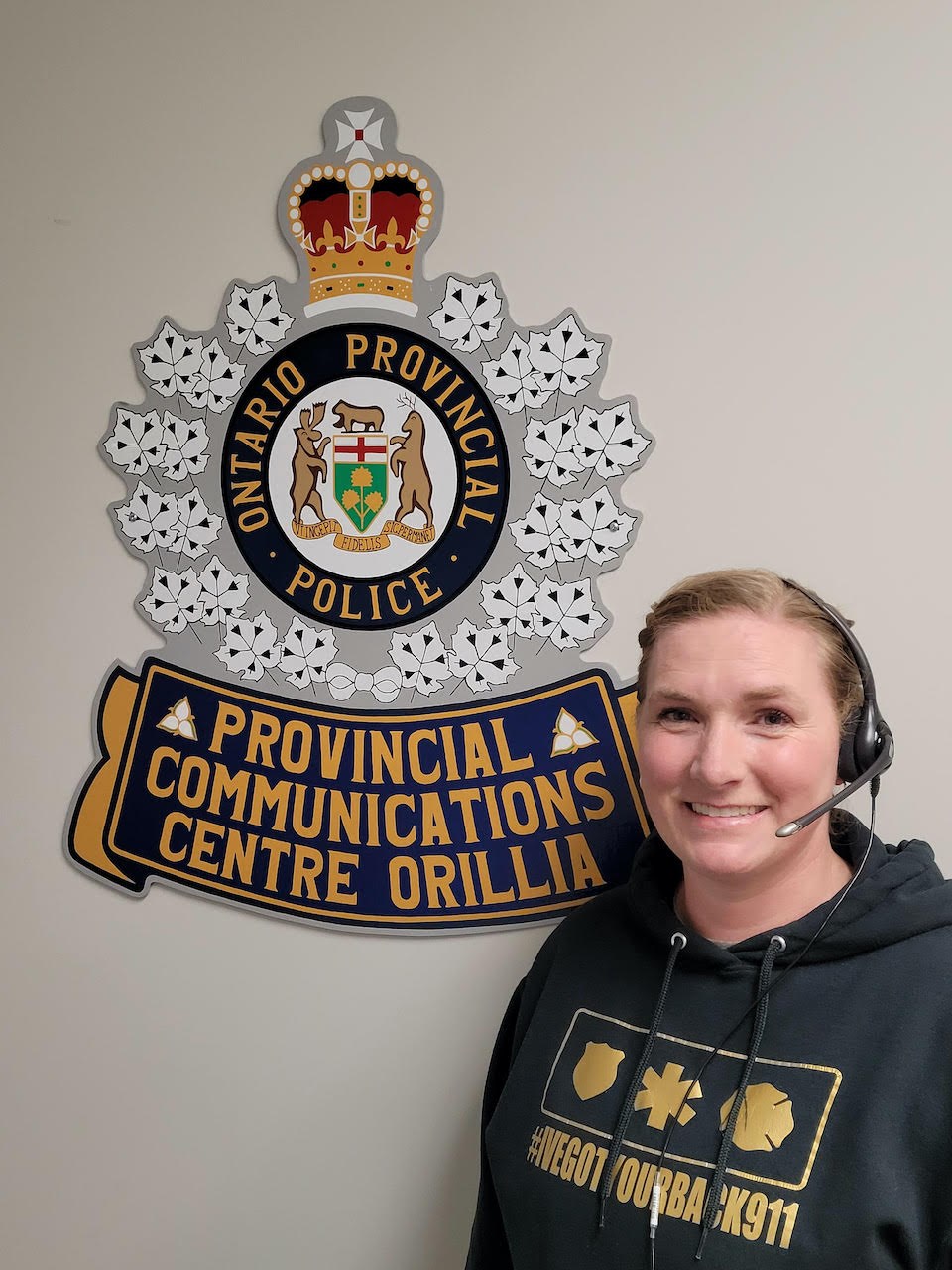This week is Telecommunicators Week in Ontario, a yearly tradition that salutes emergency dispatchers.
Orillia OPP Const. Ted Dongelmans says OPP dispatchers play a vital role.
“Dispatchers are the information lifeline for officers. They work tirelessly to ensure that we have every bit of information that we would possibly need to keep us and the public safe,” he said.
“It’s one of those jobs that doesn’t get a lot of credit, but when you call 9-1-1, they are the first calm voice that you hear, they help people in dire situations.”
Dongelmans says telecommunicators are well respected among all police officers.
“Any police officer that you talk to would tell you how vital they are to our role and the ability to do our jobs,” he said.
Our OPP call-takers and dispatchers receive hundreds of calls from people in crisis every single day of the year. It's a tough job, but they do it in a polite and professional manner that makes us proud. Here's what they say about why they do it. #NPSTW2021 pic.twitter.com/x3jqin1r5I
— OPP West Region (@OPP_WR) April 13, 2021
Leah Black has been working at the Provincial Communications Centre in Orillia for 14 years.
The 39-year-old Stratford native was working with the Ministry of Natural Resources when she decided she wanted to make the change to being an emergency dispatcher.
“I’m a people person, and it was different making the change from working in person with people to being on the phone,” Black said.
“But I enjoy helping people and trying to problem solve in order to get them the resources that they need.”
The Western University graduate admits that sometimes the job is difficult as most calls are from people who are experiencing the worst day of their life.
“I think you absorb a lot of what people are going through when you are talking to them, but you have to shake it off and move on to the next one,” she said.
“It’s definitely challenging, it’s not for everyone, but it’s rewarding when you are able to assist someone and keep them calm.”
While the job isn’t always glamorous, Black says it is one of the most important jobs in helping keep the community safe.
“I think what makes it important is you are the first contact people have before they even get to an officer. We can help dictate what their experience is going to be like in an emergency,” she said.
“Staying calm and being able to help the caller stay calm is so important. We are a negotiator without being a negotiator, we are the officer at the scene without being an officer at the scene, helping people through what’s going on and their situation.”
The main goal for an emergency dispatcher is keeping officers and the public safe, Black stresses.
“We run through a series of questions to make sure we can give the officers as much information as possible prior to them arriving at the scene. We want them to know what they are walking into,” she explained.
“Where is the most important thing, where are you? What’s happening? If we don’t know where you are then we can’t get to you.”
Maintaining calmness for an emergency dispatcher can also be a challenge, but it is a necessity to doing an efficient job, Black says.
“It can be chaotic, you could have people who are yelling so much information at you and you are just trying to pull out the most important stuff that you need in order to start getting resources to them,” she explained.
“We want to slow down the questioning so they can be very specific so that we have an idea of how things are playing out because we can’t see it, which is the hardest part for a communicator sometimes," says Black. "The information we give to the officers can only be as good as what they are giving to us.”
Black concedes the job is taxing.
“For the most part I’m able to unplug, I have my days off, but over time you start to take a little bit of it home with you - certain things stay with you,” she said.
Black is a wife and a mother to two children. She says her family is a part of her support system which keeps her mentally healthy.
“They are a great support system, it’s really nice to come home to them after my shifts,” she said.
Black also notes the OPP has come a long way over the years with creating supports for mental health.
“The OPP is understanding that people need to keep maintenance of their brain and overall health,” she said.
“Having been a person who has used those supports, I am very thankful. It helps keep my sanity at times.”
The job of an emergency dispatcher has also become more appreciated over the years, Black believes. That ensures her and her team feel they are a vital part of keeping the community safe.
“I think sometimes people don’t know we exist because we aren’t out there with sirens, we aren’t police, ambulance, or fire, but it’s become so valued within our association. I also think within the general public it’s come a long way,” she said.
“People understand this job exists and that we are people who are here to help.”
